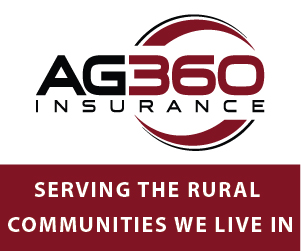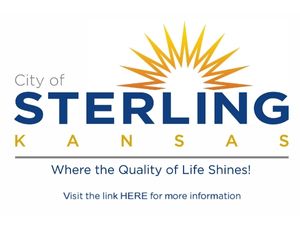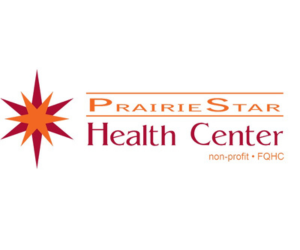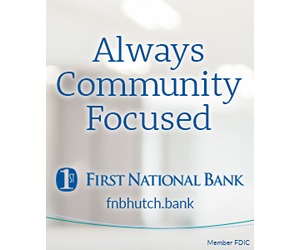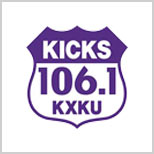By Ann Bush, Kansas State Department of Education
KANSAS — The Kansas State Department of Education (KSDE) announces the participation of all Kansas school districts and many private schools in the National School Lunch and/or School Breakfast Program. Local school officials have adopted the following household income guidelines for determining eligibility for Child Nutrition Program benefits:
INCOME ELIGIBILITY GUIDELINES,
SCHOOL YEAR 2023-2024
Household Size Free Benefits Reduced-Price Benefits
1…………………………………….. $ 18,954………………………………….$26,973
2……………………………………….25,636…………………………………….. 36,482
3………………………………………. 32,318………………………………………45,991
4……………………………………….39,000……………………………………….55,500
5……………………………………….45,682……………………………………….65,009
6……………………………………….52,364……………………………………….74,518
7……………………………………….59,046……………………………………….84,027
8……………………………………….65,728……………………………………….93,536
For each additional household member, add
+6,682………………………………………+9,509
Application forms and an informational letter to households are available from the school district or private school. Additional copies are available at the principal’s business office in each school. Applications may be submitted at any time during the year. An application for reduced-price or free Child Nutrition Program benefits can’t be approved unless it contains complete eligibility information as indicated on the application and instructions.
Households receiving food assistance or Temporary Assistance to Families (TAF) will be notified that their children will be provided free benefits unless the household notifies the school that it chooses to decline benefits. Households receiving assistance under these programs should submit an application only if they aren’t notified of their eligibility by a specified date determined by the schools. If a household receiving food assistance, TAF or Food Distribution Program on Indian Reservations (FDPIR) completes an application, the child’s name, the food assistance, TAF or FDPIR case number, as well as the signature of an adult household member, must be provided.
Participants in the special supplemental nutrition program for Women, Infants and Children (WIC) or receiving certain Medicaid benefits may be eligible for reduced-price or benefits. Households with WIC participants should complete an application as described above. Households approved for program benefits based on Medicaid will be notified.
Households with children who are enrolled in the Head Start Program or the Migrant Education Program or who are considered homeless or runaway by the school district’s homeless liaison should contact the school for assistance in receiving benefits.
Foster children that are under the legal responsibility of a state child welfare agency or court are eligible for free meals regardless of income. The state must retain legal custody of a child. Households will be notified that the foster child(ren) will be provided free benefits unless the household notifies the school that it chooses to decline benefits. Free eligibility is NOT extended to other students in households with foster children, but households with a foster child(ren) can submit an application and list all household members including the foster child(ren). A foster family application could result in different eligibility for family members, such as the foster child(ren) free and the other students could be reduced or free or not eligible for benefits.
Households not receiving Food Assistance, TAF or FDPIR apply for benefits by completing one application for all children in the household. The application must list the names of everyone in the household; the amount of income each household member now receives; the source of income; the last four digits of the Social Security number of the household member who signs the application or a statement that the household member does not possess one; and the signature of an adult household member certifying that the information provided is correct. The information is confidential and will be used only for the purpose of determining eligibility. The eligibility status may be verified at any time during the school year by school or other program officials.
Under provisions of the reduced-price and free-benefit policy, the determining official will review applications and determine eligibility. Parents or guardians who are dissatisfied with the ruling of the official may wish to discuss the decision with the determining official on an informal basis. Parents wishing to make a formal appeal may make a request either orally or in writing for a hearing on the decision. Contact the school district or private school for the name, address and phone number of the hearing official and information about the hearing procedures.
If a household member becomes unemployed or if the household size changes, the household should contact the school. Such changes may make the child(ren) in the household eligible for reduced price or free benefits if the household income falls at or below the levels shown above.
In accordance with federal civil rights law and U.S. Department of Agriculture (USDA) civil rights regulations and policies, this institution is prohibited from discriminating on the basis of race, color, national origin, sex (including gender identity and sexual orientation), disability, age, or reprisal or retaliation for prior civil rights activity.
Program information may be made available in languages other than English. Persons with disabilities who require alternative means of communication to obtain program information (e.g., Braille, large print, audiotape, American Sign Language), should contact the responsible state or local agency that administers the program or USDA’s TARGET Center at (202) 720-2600 (voice and TTY) or contact USDA through the Federal Relay Service at (800) 877-8339.
To file a program discrimination complaint, a Complainant should complete a Form AD-3027, USDA Program Discrimination Complaint Form which can be obtained online at: https://www.usda.gov/sites/default/files/documents/USDA-OASCR%20P-Complaint-Form-0508-0002-508-11-28-17Fax2Mail.pdf, from any USDA office, by calling (866) 632-9992, or by writing a letter addressed to USDA. The letter must contain the complainant’s name, address, telephone number, and a written description of the alleged discriminatory action in sufficient detail to inform the Assistant Secretary for Civil Rights (ASCR) about the nature and date of an alleged civil rights violation. The completed AD-3027 form or letter must be submitted to USDA by:
- Mail:
U.S. Department of Agriculture
Office of the Assistant Secretary for Civil Rights
1400 Independence Avenue, SW
Washington, D.C. 20250-9410; or
- Fax: (833) 256-1665 or (202) 690-7442; or
- Email: [email protected]
This institution is an equal opportunity provider.
Each school’s office and/or the district’s/organization’s main office has a copy of the policy for reduced price and free benefits which may be reviewed by any interested party.























